PAST CONFERENCE 2021
Renewing Bikur Cholim in the Time of Covid-19 (2021)
Conference held Mondays, January 4 – May 10, 2021
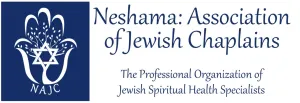
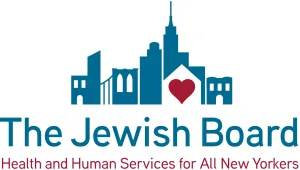

Sponsored by Neshama: Association of Jewish Chaplains, The Jewish Board, and Kavod v’Nichum
Mondays January 4 – May 10, 20217:00pm-8:30pm EST4:00pm-5:30pm PST
Ten presentations and discussions for volunteers and professionals who work in the field of bikur cholim and the general public
$72 for the 10-part series; $36 for three sessions; $18 for an individual session; scholarships widely available
Listen: Jewish Sacred Aging Seekers of Meaning Podcast with Rabbi Richard Address and David Balto talking about this conference
Questions? Contact David Zinner at info@jewish-funerals.org or 410–733–3700.
Program Index
Click a title in the index below for the session description and speaker biography.
Session are bi-weekly except session 7.
| Session Number | Date | Topics and Speakers |
| 1 | 1/4/2021 |
|
| 2 | 1/18/2021 | |
| 3 | 2/1/2021 |
|
| 4 | 2/15/2021 |
End of Life Visits – the Covid Challenge – Rabbi Karen Landy and Rabbi Janet Madden
|
| 5 | 3/1/2021 |
|
| 6 | 3/15/2021 |
Creating New Prayer in the Face of the Pandemic – Rabbi Shira Stern
|
| 7 | 4/5/2021 |
|
| 8 | 4/12/2021 |
Building a Caring Community: Organizing and Beyond – Rabbi Richard Address
|
| 9 | 4/26/2021 |
|
| 10 | 5/10/2021 |
Coping with non-death related losses: Keys to opening the conversation – Rabbi Judith R. Beiner
|
| 11 | 5/24/2021 |
Resilience and Hope During Hard Times – Rabbi Fred Klein
|
Program Chair: David Balto
Conference Co-Sponsors
We appreciate the generous support of the following additional sponsoring organizations:
The Jewish Federation in Miami, Mishkan Miami, JCFS Chicago, JFCS Atlanta, and JFCS Boston, JFCS San Francisco, JFS of St. Paul, , JFS San Francisco, JFS Philadelphia, Jewish Chaplaincy Services Stanford, Bikur Cholim of Greater Washington and Cleveland, RUACH, Aishel House in Houston, the Chaplaincy Innovation Lab, the Bay Area Jewish Healing Center, Cedars-Sinai in Los Angeles, and the Jewish Healing Center of Los Angeles.

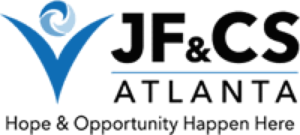

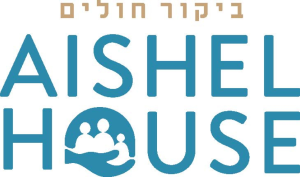

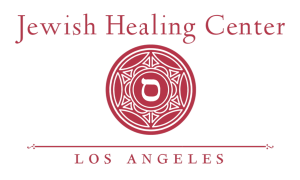
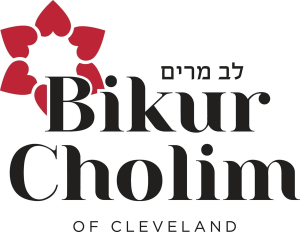


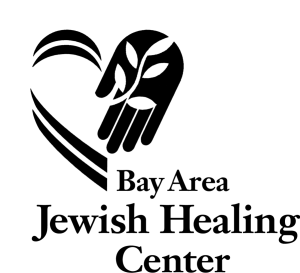

Session Details
The Changing Face of Bikur Cholim – Rabbi Miriam Herscher, Rabbi Fred Klein, Audrey Siegel, Rabbi Dr. Jason Weiner
January 4, 2021
The pandemic has changed many aspects of how we deliver care to the vulnerable and ill. This panel brings together caregivers in hospital, community, and facility settings to discuss the challenges they face and approaches to adapting bikur cholim.
Some of the issues to be addressed are:
-
- dealing with new forms of loss and isolation
- delivering service without physical presence
- keeping community service efforts strong
- new needs arising under the pandemic
Rabbi Miriam Herscher
Rabbi Miriam Herscher is not only a Rabbi, but also a Board-Certified Chaplain and a social worker. She works for the Jewish Board focusing on bereavement and mental health support. She has a social work master’s degree from Columbia University and worked as a social worker for 13 years. After which, she worked at Citigroup for 28 years in a variety of positions, ending as a VP Project manager for technology initiatives. She works in partnership with the Jewish Community Center and do Holiday bereavement programs for Rosh Hashanah, Passover and Chanukah. She does bereavement groups and spousal loss groups, as well as an “Over 80” support group. She also does mental health programming for synagogues, and special programming, as requested. She is part of a community initiative to reduce the stigma of mental health issues.
Rabbi Frederick L. Klein, MPhil, B.C.C.
Rabbi Frederick ‘Fred’ Klein, a Board-Certified chaplain, is Director of Mishkan Miami: The Jewish Connection for Spiritual Support, a program of the Greater Miami Jewish Federation and serves as Executive Vice President of the Rabbinical Association of Greater Miami. In this capacity he overseas Jewish pastoral care support for Miami’s Jewish Community, trains volunteers in friendly visiting and bikur cholim, consults with area synagogues in creating caring community, and organizes conferences on spirituality, illness and aging. As director of the interdenominational Rabbinical Association of Greater Miami, he provides local spiritual leadership with a voice in communal affairs. Rabbi Klein also is engaged in teaching Torah to Jews of all backgrounds. He serves as the in-house rabbi for the Jewish Federation of Miami. Rabbi Klein is Miami native and graduated magna cum laude from Brown University, where he received a bachelor’s degree in religious studies. While in rabbinical school at Yeshiva University, he received an MA in Bible at Revel, and later earned an MPhil in Jewish history from Columbia University. During rabbinical school, Rabbi Klein was awarded the Wexner Graduate Fellowship, and has received numerous awards for his work with aging populations and community work.
Audrey Berman Siegel
Bikur Cholim of Greater Washington/ BCGW is an independent non profit organization located in the Greater Washington DC area, dedicated to supporting the sick, their loved ones, caregivers and older adults in the Jewish community. Audrey joined the BCGW team in 2000, serving as Vice President, Volunteer Coordinator and most recently as Executive Director. Under her leadership, BCGW has grown from a small grass roots operation to a well-established organization with three employees, over four hundred committed volunteers and hundreds of clients. In addition to working for BCGW, Audrey has taught Jewish and world history and has incorporated skills developed during her teaching days to her current work. She is a great believer in the adage, “if you love what you do, you will never work a day in your life,” and feels privileged to be a part of the BCGW community.
Rabbi Dr. Jason Weiner
Rabbi Dr. Jason Weiner, BCC, serves as the senior rabbi and director of the Spiritual Care Department at Cedars-Sinai in Los Angeles, where he is responsible for the chaplaincy team and all aspects of spiritual care. Rabbi Weiner previously served as the assistant rabbi at Young Israel of Century City. He has earned two rabbinic ordinations, as well as a Doctorate in clinical bioethics from Loyola University (Chicago), where he also earned a master’s degree in bioethics and health policy, in addition to a master’s degree in Jewish history from Yeshiva University. Rabbi Weiner has completed four units of clinical pastoral education. He is a board-certified chaplain through Neshama: Association of Jewish Chaplains, and he sits on the association’s board. Rabbi Weiner is a member of the executive committee of the Cedars-Sinai Bioethics Committee. He is past president of the Southern California Board of Rabbis and has been honored with Rabbinic Leadership Awards from the Orthodox Union and Chai Lifeline. Rabbi Weiner is also the rabbi of Knesset Israel Synagogue of Beverlywood, and he frequently serves as a scholar-in-residence at conferences and synagogues throughout the nation on topics related to Jewish medical ethics, pastoral care, health and wellness, and teaches hands on Jewish medical ethics in the hospital to numerous Jewish high schools in Los Angeles.
He is the author of Jewish Guide to Practical Medical Decision-Making (Urim Press) and Guide to Observance of Jewish Law in a Hospital (Kodesh Press). He has published more than forty scholarly articles and book chapters, as well as several “popular” pieces.
The Three “R’s” of Caring for the Caregiver: Relationship, Resilience, and Renewal – Rabbi Cheryl Weiner and Faye Wilbur
January 18, 2021
Click here to see the PowerPoint slides.
Some caregivers overlook the need to care for themselves. Self-care is vital to be a fully present, engaged caregiver. The pandemic has heightened the challenges that caregivers face in taking care of themselves and others. In this presentation, we will discuss how caregivers can balance the needs of others while caring for themselves. We will offer practical and spiritual tools to face challenges in order to build resilience, inspire hope, and encourage joy.
Rabbi Cheryl Weiner
Rabbi Cheryl Weiner, Ph.D., BCC, serves as a Community Rabbi and Staff Chaplain for Mishkan Miami, the Spiritual Connection for the Greater Miami Jewish Federation and as a Chaplain for Seasons Hospice, Broward, FL. Ordained in 2007 from the Academy for Jewish Religion, California, she is on the Board of Trustees for the Jewish Publication Society and is a former Executive Board Member of the Rabbinical Association of Greater Miami and Neshama, the Association of Jewish Chaplains. Rabbi Weiner is an award-winning adult educator and is currently on the adult learning faculty of NOVA Southeastern University, LIMMUD Miami, Miami CAJE, synagogues, and JCC’s. She conducts workshops on bereavement, caregiving, bikur cholim and Sacred Jewish Conversation (end-of-life issues) and works with congregations establishing Caring Community Committees.
Faye Wilbur
Faye Wilbur, LCSW-R is Director of Community Relations for Mishkon, the division of the Jewish Board serving people with Intellectual and Developmental Disabilities. Ms. Wilbur has been privileged to work within the Jewish Board for many years in multiple roles including Jewish Community Services, director of the Boro Park clinic, Coordinator of Family Violence Services to the Jewish Community to name a few. Mrs. Wilbur is a licensed clinical social worker and therapist, with extensive post master’s training with a particular focus on trauma. Mrs. Wilbur has specialized training in family and child therapy from the Martha K Selig institute, as well as the Ackerman Institute focusing on intra-familial trauma. In addition, Mrs. Wilbur is trained in EMDR and lectures and facilitates groups on healthy/unhealthy relationships, cultural competence, family violence and teaches the NYS child abuse, maltreatment and neglect mandated course. In addition to her work for The Jewish Board, Mrs. Wilbur maintains a private practice in Brooklyn, NY.
Entering the Room through Zoom and phone: Bikur Cholim in the Virtual Age – Rabbi Joseph Ozarowski and Rabbi Jonathan Rudnick
February 1, 2021
In this era of Covid, the nature of bikur cholim is changing. We can no longer visit in person. People who may not have identified as “ill” are feeling lonely, alone and afraid. JCFS Chicago has developed a 60-90-minute training for visiting via Zoom and phone. The training includes Torah texts, a script for callers, screening tools for identifying issues that need addressing in follow up care, and a role play to illustrate a visit. We will explore this model as well as look at the texts and materials in this session.
Rabbi Joseph Ozarowski
Rabbi Dr. Joseph S. Ozarowski is Rabbinic Counselor and Chaplain for JCFS Chicago (Jewish Child and Family Services) and Jewish Chaplain at Skokie Hospital. He is also an adjunct professor at Spertus Institute for Jewish Learning and Leadership as well as the Academy for Jewish Religion in Los Angeles. Rabbi Ozarowski was cited by Chicago Jewish News as a “Top Jewish Chicagoan of 2013,” and received the “Rabbi Mordechai Simon Award” from the Chicago Board of Rabbis in 2014. He served as president of the Board of Rabbis from 2015 to 2017 and serves as President-elect of Neshama: Association of Jewish Chaplains (NAJC). An engaging, nationally known teacher and speaker, Ozarowski has served congregations in Pennsylvania, California, Minnesota and the New York area. Rabbi Dr. Ozarowski is a Board-Certified Chaplain. He received his undergraduate degree from Loyola University of Chicago, his rabbinic ordination from Skokie’s Hebrew Theological College and his doctorate from Lancaster (PA) Theological Seminary. He has served on the Jewish Federation of Chicago (JUF) Board and on the North Shore University HealthCare System Institutional Ethics Committee. A prolific author, Rabbi Ozarowski co-authored Common Ground, (1998, Jason Aronson) and has written numerous articles. His first book, To Walk in God’s Ways – Jewish Pastoral Perspectives on Illness and Bereavement, (hard cover 1995, Jason Aronson, paperback 2004, Rowman and Littlefield) is considered a standard in the field of Judaism and Pastoral Care.
Rabbi Jonathan Rudnick
Jonathan Rudnick’s background in Jewish communal work as well as his activity in the professional realm of pastoral care (chaplaincy), have prepared him well for serving as Jewish community chaplain in Kansas City. While studying in rabbinical school (ordained by The Schechter Institute of Jewish Studies in Jerusalem), Jonathan was introduced to the existence of the field of chaplaincy outside of Israel and became determined to explore the potential of this professional field of spiritual care to become part of healthcare in Israel (where it hardly exists). As a fellow in the RIKMA Program for spiritual community leadership development, he began to focus on the area of spiritual care (chaplaincy) as a niche for spiritual community development. Following a training course in pastoral care (Clinical Pastoral Education) in Kansas City, Jonathan returned to Israel to begin to implement his vision of spiritual care in the Israeli healthcare system, as part of his broader vision of communal life. After volunteering as the chaplain in the Oncology Department of Shaare Zedek Medical Center for more than a year, Jonathan officially started (with the generous support of the UJA – NY Federation) B’Ruach, a new program in spiritual care and training in Israel. He was the first professional spiritual caregiver (chaplain) to take on such a role in an Israeli hospital, and this pioneering program has been very well received over the years. Board certified by NAJC, Jonathan is an ACPE Supervisory Candidate. He has been mentored invaluably by Rabbi Simkha Weintraub (of the National Center for Jewish Healing in NY), including learning about the model of spiritual support groups, as well as by Reverend James Harper III (of Research Medical Center in KC, HCA).
End of Life Visits – the Covid Challenge – Rabbi Karen Landy and Rabbi Janet Madden
February 15, 2021
Click here to see the slides (PDF).
Perhaps the most painful aspect of the pandemic is being unable to visit a loved one as they suffer and diminish and only being able to visit them at the end of life. How do we assist those who are growing increasingly ill and approaching death? How do we help them connect with loved ones? How do we assist the families in these painful times? How can we handle the final moments and the time after death?
Rabbi Karen Landy
Rabbi Karen Landy is a graduate of the Reconstructionist Rabbinical College. She serves as rabbi and senior staff chaplain for Hebrew Senior Life at NewBridge on the Charles, and as the rabbi of Havurat Shalom in Andover, MA. She is a Board-Certified Chaplain. For over a decade she was the rabbinic presence for Chaverim Shel Shalom – a social program for Jewish adults with psychiatric challenges. Prior to coming to Hebrew Senior Life she worked as the rabbi at Jewish Family and Children’s Service. She has taught throughout the community, including at Hebrew College and Northeastern University.
Rabbi Janet Madden
Rabbi Janet Madden Ph.D is a four-time fellowship recipient of the National Endowment for the Humanities, a graduate of the Kol Zimra Sacred Chant program. A Jewish Spiritual Director, she earned certification in Jewish End of Life Practices through the Gamliel Institute. Ordained by the Academy for Jewish Religion-CA, she has served synagogue communities in Arizona, California and Hawaii. She also served the Progressive Jewish community in Poland while lecturing on Jewish texts and literature at a number of Polish universities. A GreenFaith Fellow, she is a widely published writer in areas that range from literary critical studies to environmental studies to Jewish rituals and liturgy. Rabbi Madden earned four units of Clinical Pastoral Education, is additionally certified as a Palliative Care chaplain and holds a rabbinic certificate in Gerontology and Palliative Care from Yeshiva University. She is a faculty member in the Academy for Jewish Religion-CA’s Spiritual Development Program, provides Spiritual Direction for students at Hebrew Union College’s Los Angeles campus and serves both as a Dayan and a member of the Board of Directors of the trans-denominational Sandra Caplan Community Bet Din in Los Angeles. She is a member of the Funeral Practices Committee of the Board of Rabbis of Southern California.
The Shiva Visit and Nichum Avelim: Being Present without Being Physically Present – Rabbi Anne Brener and Gene Goldstein-Plesser
March 1, 2021
Being able to provide comfort and support to the mourner is a central mitzvah. In COVID times, one of the hardships for both the mourner and those who seek to give comfort is our inability to be physically present and share hugs and tears. We have been challenged to restructure this mitzvah to provide comfort at a distance. Some of the results have been surprising. Let’s share our experiences and talk about how we can provide comfort in this new environment.
Rabbi Anne Brener
Rabbi Anne Brener, Professor of Ritual and Spiritual Development at the Academy for Jewish Religion, California, is the author of Mourning & Mitzvah: Walking the Mourners’ Path, now in its third edition. She is a Psychotherapist, Spiritual Director and Meditation Teacher, whose writing appears in many anthologies and periodicals. Anne co-founded one of California’s first Domestic Violence shelters and the Morei Derekh Jewish Spiritual Direction Training Program. She worked as a Hospice Chaplain and currently serves on the board of Aleph: The Alliance for Jewish Renewal and Los Angeles’ Fountain Theatre.
Creating New Prayer in the Face of the Pandemic – Rabbi Shira Stern
March 15, 2021
The pandemic creates challenges that seem sometime overwhelming. What is in our spiritual toolbox to assist ourselves and those we serve? What are the prayers to find strength, connect with the eternal, find a sense of wholeness, and provide comfort for suffering? Rabbi Stern will help guide us on new approaches to prayer to help us deal with these challenges.
Rabbi Shira Stern
Rabbi Shira Stern was ordained by Hebrew Union College-Jewish Institute of Religion in New York in 1983 and earned her Doctor of Ministry from HUC-JIR in 2004. She led a congregation in Monroe Township for 13 years. She was the Director of Community Chaplaincy of Middlesex County, NJ, and was the Director of the Jewish Institute for Pastoral Care, part of the HealthCare Chaplaincy, providing programs for rabbinic and cantorial students, chaplains and clergy in the field. She was trained by the American Red Cross (ARC) to serve on the SAIR team (Spiritual Air Incident Response Team) 2001-present and worked for four months at the Liberty State Park Family Assistance Center in the aftermath of 9/11, the Boston Marathon explosion, Super Storm Sandy, West Virginia, Texas and North Carolina floods as well as local deployments. Rabbi Stern is a Board-Certified Chaplain and is a Past-President of the Neshama: Association of Jewish Chaplains. She has been both a hospital and hospice chaplain, and has taught on a college and post doctoral level.
Touching the Part that’s Still Whole: Bikur Cholim with People Living with Dementia – Rabbi Dayle Friedman
April 5, 2021
Our tradition teaches us that the tzelem, the divine image, is never erased, even when memory or intellectual capacities are impaired. In other words, as visitors to people living with dementia, it is up to us to connect with the part that is still whole, whether it is wonderful memories from the past, or the capacity to enjoy the pleasures of the present moment. In this workshop, we’ll examine the experience of dementia, and explore some tools for being present with the tzelem.
Rabbi Dayle Friedman
Rabbi Dayle Friedman, MSW, MA, BCC, is a spiritual guide, social innovator, chaplain, and scholar who is passionate about bringing meaning and radiance to aging. Her recent publications include Jewish Wisdom for Growing Older: Finding Your Grit and Grace Beyond Midlife, and Jewish End-of-Life Care in a Virtual Age: Our Traditions Reimagined (co-editor, 2020).
Building a Caring Community: Organizing and Beyond – Rabbi Richard Address
April 12, 2021
Community and relationships are key elements in the pastoral counseling, bikur cholim covenant. Congregations continue to be THE major institution in creating an environment of honoring, supporting and caring for individuals and families. The dignity and sanctity of life remains a fundamental ethic. How has recent events like Covid impacted congregation’s ability to care for and support members? What values can inform the program that a congregation can create? How do we make sure that no one is “alone” in a world that is so uncertain? What does it mean to create and maintain a kehilat chesed?
Rabbi Richard F. Address, D.Min.
Rabbi Richard F. Address is Founder and Director of Jewish Sacred Aging® the web site www.jewishsacredaging.com and the host of the weekly Jewish Sacred Aging® pod cast Seekers of Meaning. Prior to leaving the URJ he served as Specialist for Caring Community and Family Concerns. In this capacity he consulted and advised synagogues of the Reform movement in creating congregations that are “caring communities” that sought to have as their foundation a “theology of sacred relationships.” Rabbi Address’s work is involved in several major programmatic areas. They include such issues as: the changing faces of the contemporary Jewish family; challenges to our congregations relating to older adults and the aging of the baby boom generation, their spiritual aging and the challenges of intergenerational care-giving; concerns over self-destructive behaviors, resiliency and the pressures on our youth; issues of inclusiveness and openness for people with disabilities and the impact of emerging medical technology on the choices that confront today’s Reform Jews.
The Parashah and The Patient: Bringing Sweet Torah into Bikur Cholim – Rabbi Simkha Y. Weintraub, LCSW
April 26, 2021
The challenges we face from the pandemic can be overwhelming: loss, sorrow, anxiety,
fear, tremendous isolation and unrelenting uncertainty. Where are the tools to cope with these challenges? The Torah, our Tree of Life, can guide us on a path to healing and understanding, to reclaiming and sustaining community across time and space. This program will explore how to incorporate Torah, particularly elements of the weekly parashah, in seeking to meet these challenges, restoring connections and rekindling hope.
Rabbi Simkha Weintraub
Rabbi Simkha Y. Weintraub, LCSW, recently retired from his position as Rabbinic Director of the Jewish Board of Family and Children’s Services in New York City. For more than 25 years, through the National Center of Jewish Healing and the New York Jewish Healing Center, he wrote and taught about the use of Jewish spiritual resources in confronting illness, loss, and trauma. With treasured colleagues in the Jewish Healing world, he developed approaches to Jewish spiritual counseling and support groups, and a broad range of workshops and materials that integrate Jewish traditional resources with mental health perspectives. He has trained thousands of social workers, rabbis, chaplains, doctors, nurses, and others around the U.S., Canada, and Israel, and took part in numerous Jewish and interfaith conferences on subjects ranging from The Legacy of 9/11, Domestic Violence, Depression, Suicide, Forgiveness, Shame, Family Relationships, and more. For nearly 15 years, he was an Adjunct Lecturer in Pastoral Skills at JTS, teaching courses in Loss and Bereavement, Jewish Spiritual Counseling, and Behavioral Health. Among his many writings are Healing of Soul, Healing of Body (Jewish Lights, 1994) and Guide Me Along the Way: A Jewish Spiritual Companion for Surgery (NCJH/Jewish Board, 2001), as well as many essays, articles, prayers, and rituals.
Coping with non-death related losses: Keys to opening the conversation – Rabbi Judith R. Beiner
May 10, 2021
Click here for PowerPoint slides from class
As individuals, we experience many types of loss: unrealized dreams, losses of relationships, abilities, identities and more. Living through COVID has produced a host of losses for people around the world as we grapple with isolation, lifestyle changes and community decline amidst the spread of disease. The goal of this workshop is to equip participants to engage in conversations about losses with those they encounter in Bikkur Cholim work as well as with family members. Topics include:
Telling and hearing stories of loss
Clinical definitions of losses
Rituals and prayers for separation and healing
Practices, images and poetry to inspire resilience
We lose not only through death, but also by leaving and being left, by changing and letting go and moving on. And our losses include not only our separations and departures from those we love, but our conscious and unconscious losses of romantic dreams, impossible expectations, illusions of freedom and power, illusions of safety — and the loss of our own younger self, the self that thought it would always be unwrinkled and invulnerable and immortal. — Judith Viorst
Rabbi Judith R. Beiner
Rabbi Judith Beiner currently serves as the Community Chaplain at Jewish Family and Career Service of Atlanta, GA. Ordained at the Hebrew Union College in 1993 she has loved being a pastor and teacher for 25 years. Her rabbinate has taken her across the country, serving congregations in Colorado, Kansas and Georgia. She has taught in both formal and informal educational settings for both youth and adults. As a chaplain, Rabbi Beiner provides those encountering illness or crisis support and comfort. She is particularly gratified by the trust placed in her by congregants, patients, colleagues, volunteers and students. In every community where she has lived, Rabbi Beiner has been an active member of the local Rabbinic Association, and a supporter and participant in activities of the Jewish community.
Resilience and Hope During Hard Times – Rabbi Fred Klein
May 24, 2021
We live in uncertain times, but Jews have always faced uncertain times. What are the sources within Jewish tradition that can inform us as to how to better address the anxiety that we all face during this time? How can we find resilience and strength by exploring our many sources?
Rabbi Frederick L. Klein, MPhil, B.C.C.
Rabbi Frederick ‘Fred’ Klein, a Board-Certified chaplain, is Director of Mishkan Miami: The Jewish Connection for Spiritual Support, a program of the Greater Miami Jewish Federation and serves as Executive Vice President of the Rabbinical Association of Greater Miami. In this capacity he overseas Jewish pastoral care support for Miami’s Jewish Community, trains volunteers in friendly visiting and bikur cholim, consults with area synagogues in creating caring community, and organizes conferences on spirituality, illness and aging. As director of the interdenominational Rabbinical Association of Greater Miami, he provides local spiritual leadership with a voice in communal affairs. Rabbi Klein also is engaged in teaching Torah to Jews of all backgrounds. He serves as the in-house rabbi for the Jewish Federation of Miami. Rabbi Klein is Miami native and graduated magna cum laude from Brown University, where he received a bachelor’s degree in religious studies. While in rabbinical school at Yeshiva University, he received an MA in Bible at Revel, and later earned an MPhil in Jewish history from Columbia University. During rabbinical school, Rabbi Klein was awarded the Wexner Graduate Fellowship, and has received numerous awards for his work with aging populations and community work.
